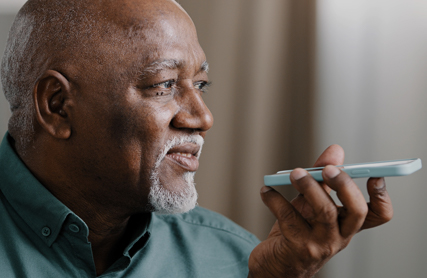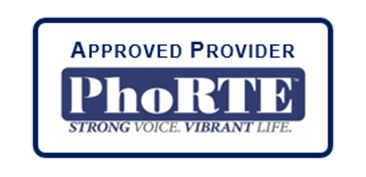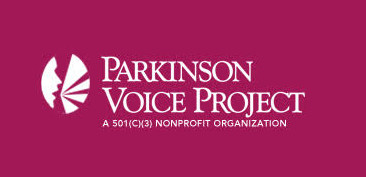

IF YOU ARE EXPERIENCING...
- VOICE CHANGES
- HOARSENESS
- VOCAL FATIGUE OR STAMINA ISSUES
- THROAT DISCOMFORT WITH USE
- UNRELIABLE VOICE
- BREATHING DIFFICULTIES
- CHRONIC COUGH AND THROAT CLEARING
- SWALLOWING DIFFICULTIES
- SINGING VOICE ISSUES
Call For A Consultation:
214-307-1911
Jean Skeffington, M.A., CCC-SLP (she/her/hers) will develop an individualized plan of care to meet your needs.
What Our Colleagues Say
“…[Jean] brings extra knowledge and skills beyond those expected for most singers and teachers, specifically, by way of her training in Speech Pathology, knowledge and skills in anatomy and physiology of voice, voice acoustics, causes of vocal pathology and their treatment, and interdisciplinary work in voice. She also brings with her deep understanding of perceptual-motor learning applied to voice and speech training, understanding she gained under my own tutelage and elsewhere. Moreover, these knowledge and skill domains are not recent acquisitions for Jean; they span decades of work in voice pedagogy, conservatory work in voice, and speech-language pathology.
Jean’s expertise in voice crosses typical genre boundaries. I would consider her special also in this regard. Her CV points to experience and expertise ranging from classical to musical theatre and barbershop genres. Myself a singer, I can attest to the exquisite beauty and elegant ease of her own singing voice.
Finally, Jean is extremely collegial and easy to be around. She has experience with and a propensity towards within- and across-discipline collaborations…I recommend her heartily.”
” Jean’s ability to patiently listen to my patient’s vocal concerns and prescribe an effective treatment plan has always been done in a compassionate manner with excellent results. Through Jean’s genuine concern for her patients, she has formed important relationships with her patients that have led to outcomes that at times were beyond what could be expected with voice therapy. Ms. Skeffington’s experience as a performer, voice educator and director has given her a unique perspective which is invaluable in the care of patients with voice disorders.
In addition to Ms. Skeffington’s clinical abilities, she is a confident orator and has presented insightful lectures to my residents at Grand Rounds. Jean is an accomplished author and enjoys the academic contributions to her field. I have had the pleasure of seeing her perform her true vocal talent at World Voice Day concerts.
Jean Skeffington is a gem and I have looked forward to seeing her smiling face and positive attitude at work.”
FREQUENTLY ASKED QUESTIONS
Videostroboscopy is a video recording of your vocal folds in motion, making sound. It captures these rapid movements and condenses the images to play back with the appearance of slow motion. This differs from looking with a regular endoscope which is unable to capture these fine, rapid motor movements. Videostroboscopy technology uses a microphone and strobe light to take images to better evaluate structure and function of the vocal folds.
Either a rigid scope (placed on your tongue) or a flexible scope (in your nose) will be used to view the larynx and vocal folds. Video will be recorded of you making sounds and speaking. This procedure does not hurt, there is little to no risk of bleeding, and usually lasts about 1 minute.
Your voice is often your first introduction to the world and is closely tied to your identity. We use our voices for day-to-day communication, but also to work. Professional voice users are not just singers and actors, but teachers, coaches, personal trainers, call center operators, and any other person who uses his or her voice to make a living. You might need voice therapy if you are experiencing any of the following:
- Voice changes or hoarseness that doesn’t improve for 2-3 weeks
- Chronic cough or throat clearing
- Shortness of breath/Vocal cord dysfunction
- Pain or fatigue when speaking
- Loss of voice when speaking
- A desire to change your voice to align with your true self and gender
- Loss in range of singing voice or other singing voice concerns
A specialty trained speech language pathologist in voice and voice disorders will provide therapy to balance the subsystems of voice: breathing (power), sound (vibration) and quality (resonance). A voice care program, referred to as vocal hygiene, involving hydration and eliminating vocally traumatic behaviors, will also be addressed. Exercises will be taught to gain awareness and skill in healthy voice production, and an individualized home exercise program will be assigned for practice in habituating and sustaining new skills in activities of daily living.
Voice therapy is appropriate before and after laryngeal surgery to eliminate traumatic behaviors and to recover and prevent future injury.
After consultation, you will be scheduled for an appointment. If the appointment is to be by telehealth, you will receive instructions and an “invitation” to the “virtual waiting room.”
A few minutes prior to your appointment, go to “virtual waiting room.” There is no software to download. We use doxy for end-to-end encryption so there’s no worry about privacy on the web. Please have all materials, assignments, notes, tools, recording equipment, etc. ready to go! Be sure to be in a private, quiet room with good internet access for the appointment.












